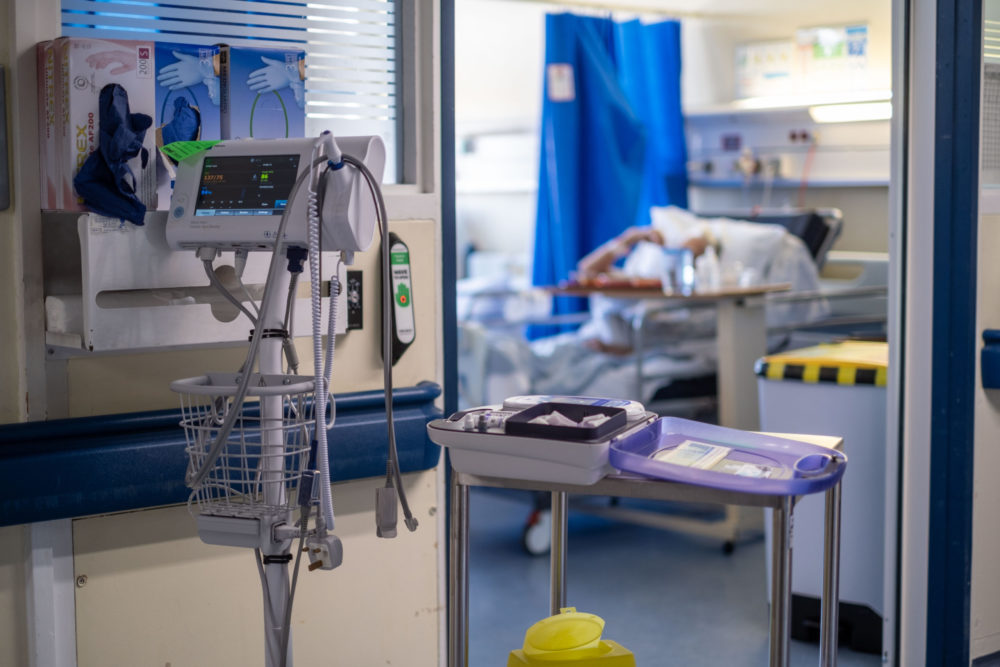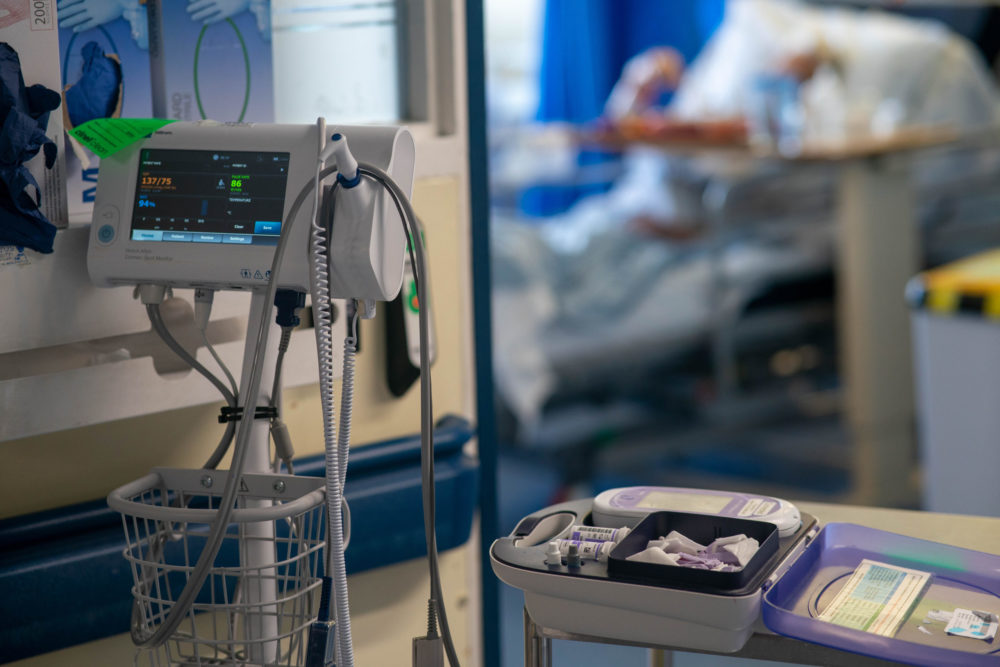 Photo Jeff Moore/PA Wire
Photo Jeff Moore/PA Wire
Professor Russell Deacon
To anyone who works in or interacts with the NHS in Wales – be it for themselves, a friend, or a relative—it’s clear that when the system works, it can be a truly extraordinary institution. It saves lives, offers comfort, and provides care in times of great need. But when it doesn’t work, the experience can be frustrating, disjointed, and exhausting.
The NHS in Wales often suffers from what economists call “diseconomies of scale” – an organisation so vast and cumbersome that its own size becomes the very thing that slows down the compassionate, efficient care at its core. Bigger is very often not better with respect to the patients who often have no choice but to use the service!
Let me put it another way.
Imagine if all supermarkets in Wales, except Waitrose, were merged into one giant Tesco. Now imagine this new Tesco placed most of its stock in massive hypermarkets with 200 aisles, where the products were largely free – but with a much narrower selection than before, when there were many different supermarkets. In each aisle, shelf-stackers were responsible only for their own section, rarely communicating with other aisles.
In each aisle they tell you what you can have, when you can have it, or that if items are out of stock you would be placed on a waiting list but with no idea how long the wait would be. At the same time sometimes you couldn’t move from one aisle to the next because staff were on staggered (or simultaneous) breaks. Each aisle had a supervisor governed by a lengthy rulebook, which could lead to inconsistencies in stock and its availability. The store had a general manager, but they were far too busy to manage each aisle effectively. Staff often outnumbered customers, but at many times seemed more focussed on their products than the needs of the people using them.
This, to me, is a fitting metaphor for how the NHS currently operates in Wales. Tesco represents the NHS; Waitrose is the private sector – offering similar or better products (sometimes by the same staff working extra hours), but at a price most Tesco shoppers couldn’t afford. This seems to be the operational model the NHS in Wales has chosen.
Business logic
We’re told that “the NHS isn’t a business” and that it can’t run like one. But that doesn’t mean it should reject basic business logic: effective management, streamlined operations, and accountability.
Right now, we all pay for a product we can’t always access that easily or at all. If this were a commercial enterprise making its customers wait years for a product, we’d go elsewhere. But with a near-monopoly and limited private alternatives, most of us are stuck with the ‘Bigger the Better’ model of service provision.
From my own experience – and more recently in picking up an elderly friend from hospital – the system is clearly not working as it should. After five hours in the ward waiting, no doctor was available to explain the patient’s diagnosis or recovery plan, so we were discharged without one.
Though he was told he could be discharged at 1pm, we were informed when I arrived it would take another 2–3 hours for pharmacy to issue his medication. Meanwhile, my local GP surgery in Caerphilly can process a prescription in two minutes. I was told the delay was due to “volume” and “multiple checks”. But why can’t prescriptions that are issued every day be pre-packed based on data? It left me thinking why must the worst practices in the NHS persist when better ones exist within the same system? Would not each ward having an effective manager ensure that this situation did not occur?
Improvements
Not all NHS patient improvements require vast sums of money. Many come down to changing attitude, communication, and remembering that patients and their families aren’t fluent in NHS jargon. We need transparency, compassion, and some common sense when dealing with people.
From what I have seen and noted, what patients need from the NHS in Wales are:
1. Clear timelines – If there’s a wait of hours to be seen when entering the system, let people return closer to the time for their scan or check-up. If they are already on the ward, don’t say ‘a doctor will see you some time’, say between 11-12 or around that time. The patient can relax and stop looking at every medical person who passes wondering if that is the doctor.
2. Uniform clarity – Related to point 1 – a wall chart explaining staff roles by uniform colour would help us know who does what.
3. Patient confidentiality – Don’t discuss medical details publicly on the ward when in your group consultations; both the patients and everyone visiting can hear and see you do this and it does little for patient confidentiality.
4. Diagnosis clarity – Explain the condition and recovery plan clearly, in writing, with patient, family and GP. .
5. Medication guidance – What does it do? What are the side effects? When will it help? Please tell us.
6. Respect for older patients – Speak to them directly, not just their relatives over their heads.
7. Joined-up care – How does hospital treatment link with GPs and community services? Why can’t those discharged be provided with a GP follow up appointment time within 48-72 hours to plan their recovery?
8. Break coordination – Why not stagger breaks to avoid bottlenecks, such as X-ray taking a break 30 minutes different from the department that is sending them there?
9. Post-discharge support – Provide real contact points if problems arise and advice, not dead-end phone lines. The private health system does this already.
Inconsistency
Some NHS staff and institutions undoubtedly do much of this. But many do not – and the system allows that inconsistency to persist. For patients, especially the elderly or vulnerable, a hospital visit can be physically and emotionally draining. When you observe staff clustered like sheep on a field, it’s hard not to wonder, where are the shepherds?
Contrary to popular belief, the NHS doesn’t have too many managers – it has too few effective ones. What it needs are competent, compassionate managers who can shepherd the service toward its founding principles: to care, to cure, and to do so with dignity.
We all want the NHS to succeed. But unless it changes how it’s managed, we risk allowing this titanic service, like the ship of the same name, to continue sinking into troubled waters.
Professor Russell Deacon is a visiting Professor in Welsh History and Politics at the University of South Wales but writes here in a personal capacity.
Support our Nation today
For the price of a cup of coffee a month you can help us create an
independent, not-for-profit, national news service for the people of Wales, by
the people of Wales.


